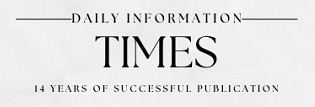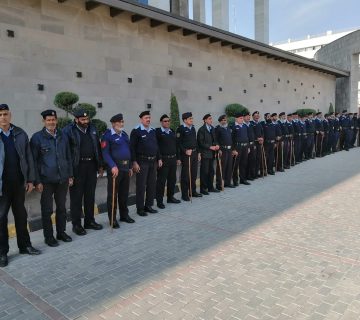ISLAMABAD, Sep 15: The Supreme Court (SC) struck down some sections on Friday of the amendments made to the National Accountability Ordinance (NAO) 1999 by the previous government, as it announced its reserved decision on Pakistan Tehreek-e-Insaf (PTI) chief Imran Khan’s plea challenging the amendments to the law.
The SC by majority 2 to 1 declared the former prime minister’s plea challenging amendments to the NAB law as maintainable.
All National Accountability Bureau (NAB) cases and inquiries, including those of below Rs500 million, that were disposed of subject to the amendments, now stood restored.
The apex court struck down the sections pertaining to the definition of be-nami and assets beyond means, as well as the section shifting the onus of proving a case onto the prosecution.
The top court had reserved its verdict on September 5, after conducting 53 hearings on the former prime minister’s petition.
A three-judge special bench, led by outgoing Chief Justice Umar Ata Bandial and comprising Justice Ijazul Ahsan and Justice Mansoor Ali Shah, heard the plea. The bench appeared to be visibly divided over the matter during the proceedings.
During hearings, Justice Shah consistently questioned the maintainability of the petition, whereas CJP Bandial and Justice Ahsan remained critical of some of the amendments made to the NAB law by the Pakistan Democratic Movement government.
The federal government was represented by Makhdoom Ali Khan, while Imran Khan was represented by Khawaja Haris.
The CJP was expected to announce the ruling in this case before his retirement, and the judgment said to have far-reaching implications on national politics.
The SC had directed Attorney General of Pakistan Mansoor Usman Awan to submit a written submission in favour of the amendments on the day it reserved its ruling.
AGP’s submission
Complying with the top court’s orders, the AGP submitted a written document on September 10, in which he contended that the NAO 1999 – the law that governs the country’s top anti-graft watchdog, the National Accountability Bureau (NAB) – was not applicable to the superior courts’ judges and armed forces personnel.
“As the Constitution of Pakistan provides for a comprehensive mechanism regarding the accountability of the superior judiciary; hence inclusion of the superior judiciary within the purview of the definition of “public officeholder” under the NAB amendments would be irrational,” said the AGP’s concise statement.
Awan maintained in his statement that under Article 209 of the Constitution, the Supreme Judicial Council (SJC) is mandated with the duty of regulating cases of misconduct and discipline pertaining to the superior judiciary.
“The SJC comprises the Chief Justice [of Pakistan], two senior most justices of the Supreme Court and two senior most Chief Justices of the high courts.
“The composition of the council with members of such high standing and intellect shows the intent of the framers of the Constitution was to ensure that independence of judiciary is not compromised or eroded,” it said.
Referring to the Khan Asfandyar Wali v Federation of Pakistan case, it said the SC in its ruling in that case noted with approval its observation in the Zafar Ali Shah case that “the judges of the 23 superior courts are not immune from accountability. They are accountable only in the manner laid down under Article 209 of the Constitution”.
The AGP said the exclusion of the members of armed forces from the purview of NAB was also considered in the Khan Asfandyar Wali case, adding that this exclusion does not mean that the members of armed forces are immune from accountability.
The AGP also raised serious questions about the maintainability of the former prime minister’s petition.
He said the main thrust of the petitioner’s argument in support of his petition is that the amendment has resulted in diminishing the process of accountability of the chosen representatives, who hold office in trust as trustees for the benefit of the people of Pakistan.
“On the one hand, the petitioner may be right in asserting that chosen representatives are trustees and hold their office in trust for the benefit of the people and for this reason asserts higher threshold for their accountability but on the other hand petitioner himself, wilfully flouted the trust by abandoning the parliament and forcing his party members to resign from the seats of the National Assembly.
“By doing so, knowingly, the petitioner left the majority of the country unrepresented in the National Assembly and thereby violated the very trust for which he wants others to be accountable for.”




No comment